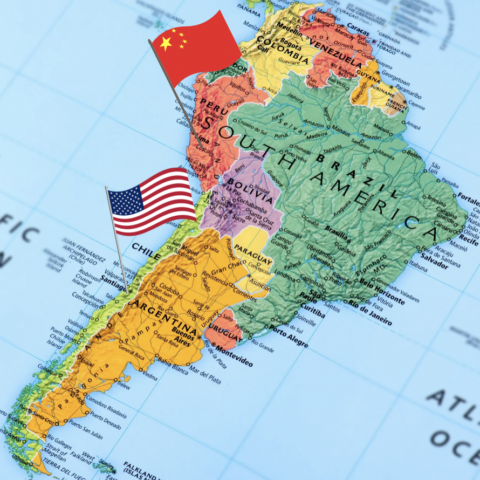Can the US and China Unite to Meet a North Korean Nuclear Threat?

By: Max Wallace
As Kim Jong-un persists in his threats to renew armed conflict on the Korean Peninsula, an exacerbated international community finds itself increasingly hard-pressed to find a peaceful solution to the crisis. Neither Pyongyang nor Washington seem likely to compromise on its stance regarding a nuclear-equipped North Korea, and all attempts to generate direct talks between the two nations have been unsuccessful. The few diplomatic ties linking North Korea to the outside world now severed, the only manner in which the United States can engage North Korea is through military action. However, there remains one untapped avenue of diplomacy, one last hope of persuading North Korea to back down from its inflammatory rhetoric. The U.S. finds itself looking to a perhaps unlikely ally in its efforts to contain North Korea’s aggression. The best hope to avert conflict lies with action on the part of China.
China has long been North Korea’s most important link to the international community. For years, Beijing has propped up the Kim regime through shipments of food and other basic resources the North has been unable to supply for its people, and would almost certainly have collapsed without. This vital economic link now appears to be one of the last forms of leverage on an increasingly erratic North Korean government. By reducing shipments of basic items that the regime relies on for survival, China may be able to make the cost of a nuclear missile too great to bear. China has so far condemned North Korea’s actions, and in a recent meeting with Secretary of State John Kerry, reinforced their commitment to “advancing the denuclearization process on the peninsula.” If China is truly to maintain their commitment, the next logical step, despite being fraught with risk, is the enactment of trade sanctions.
Despite the potential benefits, further constraining North Korea by reducing their food supplies represents a risky proposition for the Chinese government. If too much pressure is applied, Kim Jong-un may feel so isolated that he views military action as his only viable response. The likelihood of this outcome is increased by the fact that Chinese officials have failed to cultivate a meaningful relationship with Kim Jong-un, who is relatively new to power. No senior Chinese officials have personally met with the new leader, and previous attempts by Chinese envoys to dissuade North Korea from further nuclear tests have proved unsuccessful. This lack of personal relationships, combined with a historical reluctance to impose economic sanctions on an allied nation, makes Chinese leaders understandably hesitant to interfere with the North Korean economy. Should China take action which might contribute to the collapse of the North Korean government, it would be presented with a massive influx of refugees from the south, and would lose the buffer which separates it from a U.S.-supported South Korea.
Unpalatable and dangerous as it may be, direct intervention by China appears to be among the only options remaining that would not certainly result in war with North Korea. China’s interests would be best served by the North Koreans relinquishing their nuclear capabilities and Kim’s dictatorship resuming its isolationist policies. If things are allowed to progress on their current course, such an outcome is increasingly unlikely. The current pattern of belligerent threats being answered by condemnation is untenable; some sort of additional action must be taken. China now finds itself uniquely placed on the international stage, and presented with an opportunity to reinforce its status as a global power and leading force in international politics. It has a rare opportunity to succeed where the U.S. cannot, peacefully defusing tensions on the Korean peninsula, but to do so, China must act swiftly and firmly.

